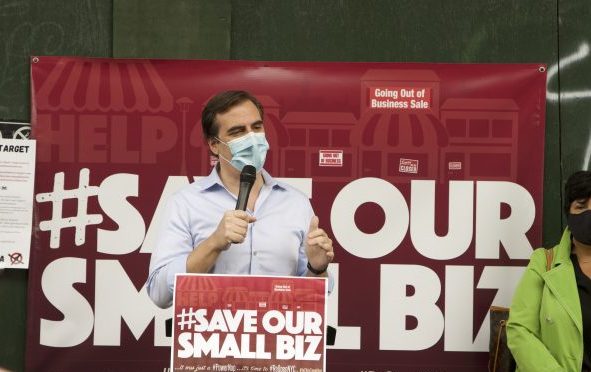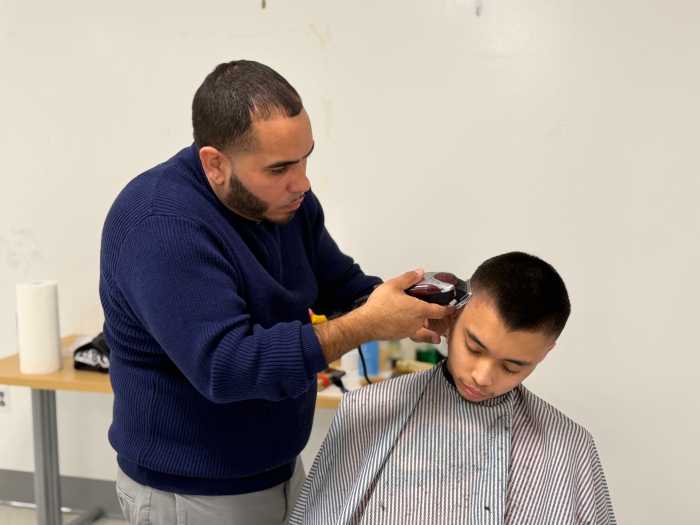As New York continues a slow reopening after the coronavirus outbreak, small businesses in Queens are now asking elected officials to reconsider some restrictions on outdoor events, and to ramp up protections for small businesses on issues like commercial insurance payouts.
At a press conference organized by the Western Queens Small Business Association, on Thursday, dozens of business and nonprofit leaders from across the borough met to draw attention to the issues local businesses have been facing since the pandemic began.
Elected officials who spoke at the event, including State Senator Michael Gianaris (D-Astoria, Long Island City, Sunnyside, parts of Woodside, Maspeth, Ridgewood, Woodhaven), who represents western Queens, blasted inaction in both Albany and Washington to protect businesses.
“We were told for months ‘let’s wait — Washington may come to our rescue, let’s wait and see if we don’t have to do anything drastic because we will just get a big influx of money from the federal government,” Gianaris said. “Well it’s pretty clear that Washington is not coming to our rescue.”
In addition to the press event, the association sent a letter to top state and city elected officials. The letter which was signed by 39 small businesses from across Queens, and outlined demands from business leaders.
Though much of the attention has been paid to bars and restaurants, business owners like Kambri Crews, who owns a Q.E.D., a multipurpose performance space in Astoria, said special state regulations on performances continue to keep her business from reopening.
“Cuomo and the [State Liquor Authority] are operating without logic, it seems,” Crews said. “Right now you can have indoor bowling, indoor gyms, but you can’t have an outdoor comedy show.”
While Q.E.D. did qualify for the Payroll Protection Program (PPP) loans from the federal government, which provide payroll assistance to employers, businesses have largely had to burn through their savings to stay afloat.
“Since the pandemic, Q.E.D. had a positive balance, and that was about $40,000, and that’s been completely obliterated. It’s wiped out,” Crews said.
Small businesses are also struggling to get insurance companies –– who typically cover business disruptions under commercial policies –– to pay for losses because of the pandemic.
Despite believing that her businesses would be covered under their business insurance, small business owners like Sheila Lewandowski, who owns The Chocolate Factory, a 74-seat theater in Long Island City, found out that pandemics are excluded under many policies.
“For a lot of places, and this goes to restaurants, theaters, they will say your property is not damaged, so we will not cover business income loss because the business interruption insurance is tied to property damage,” Lewandowski said.
In May, Congresswoman Carolyn Maloney (D-Astoria and Long Island City, parts of Brooklyn, and Manhattan) introduced a bill which will force small business insurers to make up for lost income due to the pandemic closures.
“Millions of small businesses, nonprofits, mom-and-pop shops, retailers, and other businesses are being left out in cold and will never be able to financially recover from the coronavirus crisis because their business interruption insurance excludes pandemics,” Maloney said in a statement released back in May. “We cannot allow this to happen again. These employers and their employees need to know that they will be protected from future pandemics.”
More than a simple shell game with insurance companies, however, small business owners like Crews feel deeply invested in their community and invest significant amounts of personal capital, even drawing from her 401k to open Q.E.D.
“I invested the rewards I reaped from my hard work back into my community — I did the thing you’re supposed to do, I reinvested in my community — so it’s really frustrating to have my community then not help me out when I need it.”







